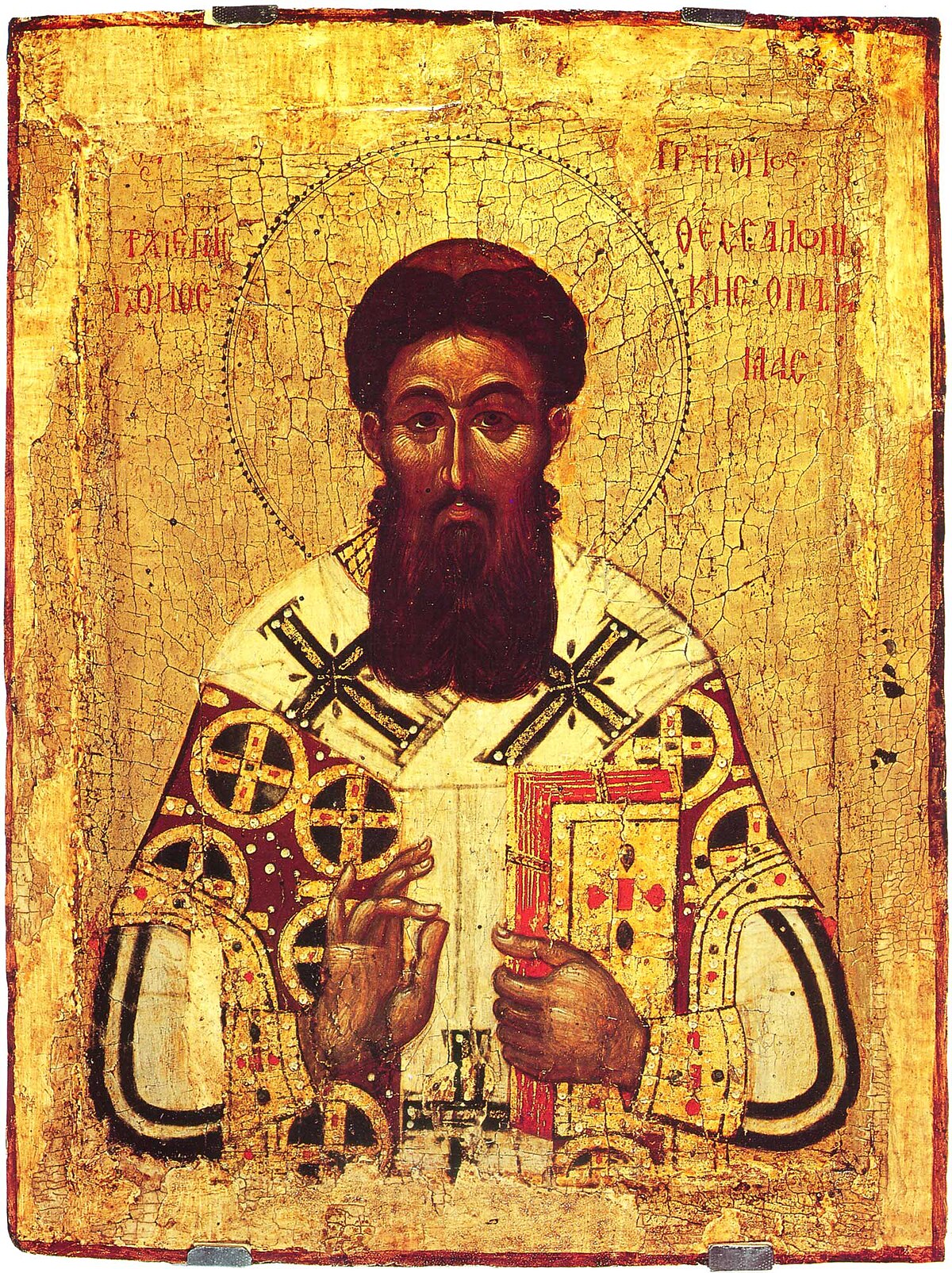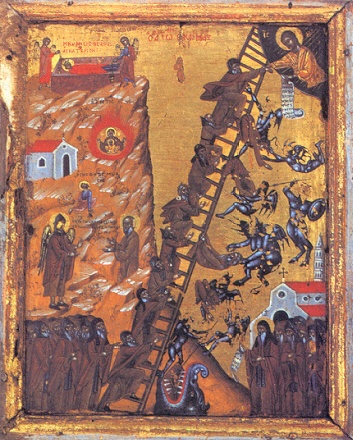
en.wikipedia.org
Addressing the question of how it is possible for man to have knowledge of a transcendent and unknowable
God, Palamas drew a distinction between knowing God in his
essence (Greek
ousia) and knowing God in his
energies (Greek
energeiai). The divine energies concern the mutual relations between the Persons of the Trinity (within the divine life) and also God's relation with creatures, to whom they communicate the divine life. According to Palamas, God's essence and his energies are differentiated from all eternity, and the distinction between them is not merely a distinction drawn by the human mind. He maintained the Orthodox doctrine that it remains impossible to know God in His essence (to know who God is in and of Himself), but possible to know God in His energies (to know what God does, and who He is in relation to the creation and to man), as God reveals himself to humanity.

en.wikipedia.org
Through
theoria (illumination with or direct experience of the Triune God), human beings come to know and experience what it means to be fully human, i.e., the created image of God; through their communion with Jesus Christ, God shares himself with the human race, in order to conform them to all that He is in knowledge, righteousness, and holiness. As God became human, in all ways except sin, he will also make humans "God", i.e., "holy" or "saintly", in all ways except his Divine Essence, which is uncaused and uncreated.
Irenaeus explained this doctrine in the work
Against Heresies,
Book 5, Preface: "the Word of God, our Lord Jesus Christ, Who did, through His transcendent love, become what we are, that He might bring us to be even what He is Himself."
For many
Church Fathers,
theosis goes beyond simply restoring people to their state before the
fall of Adam and Eve, teaching that because Christ united the human and divine natures in Jesus' person, it is now possible for someone to experience closer fellowship with God than
Adam and Eve initially experienced in the
Garden of Eden, and that people can become more like God than Adam and Eve were at that time. Some Byzantine Christian theologians say that Jesus would have become
incarnate for this reason alone, even if Adam and Eve had never sinned.
All of humanity is fully restored to the full potential of humanity because the Son of God took to himself a human nature to be born of a woman, and takes to himself also the sufferings due to sin (yet is not himself sinful, and is God unchanged in being). In Christ the two natures of God and human are not two persons but one; thus a union is effected in Christ between all of humanity in principle and God. So the holy God and sinful humanity are reconciled in principle in the one sinless man, Jesus Christ. (See Jesus' prayer as recorded in
John 17.)
This reconciliation is made actual through the struggle to conform to the image of Christ. Without the struggle, the
praxis, there is no real faith; faith leads to action, without which it is dead. One must unite will, thought, and action to God's will, his thoughts, and his actions. Christians must fashion their lives to be a mirror, a true likeness of God. More than that, since God and humanity are more than a similarity in Christ but rather a true union, Christians' lives are more than mere imitation and are rather a union with the life of God himself:
"If then there is any encouragement in Christ, any consolation from love, any sharing in the Spirit, any compassion and sympathy, for it is God who is at work in you, enabling you both to will and to work for his good pleasure." (Philippians 2:13)
A common analogy for
theosis, given by the Greek fathers, is that of a metal which is put into the fire. The metal obtains all the properties of the fire (heat, light), while its essence remains that of a metal. Using the head-body analogy from
Paul the Apostle, everyone in whom Christ lives partakes of the glory of Christ. As
John Chrysostom observes, "where the head is, there is the body also. There is no interval to separate between the Head and the body; for were there a separation, then were it no longer a body, then were it no longer a head."


